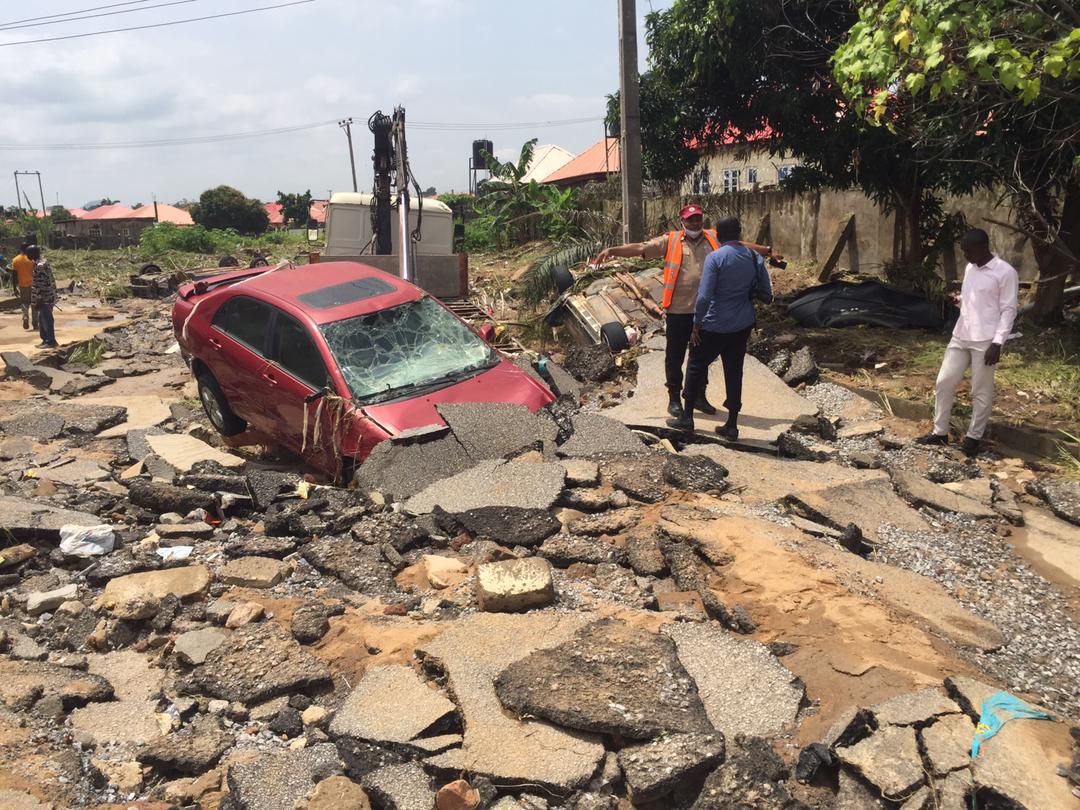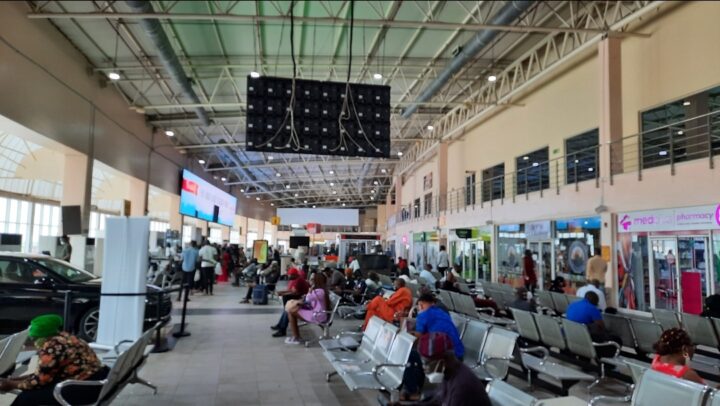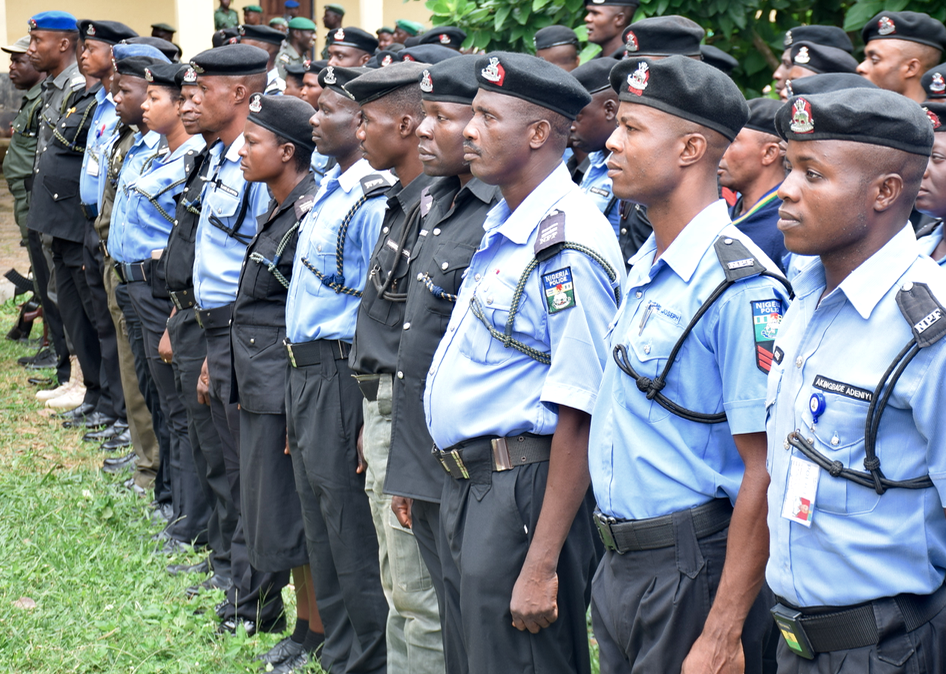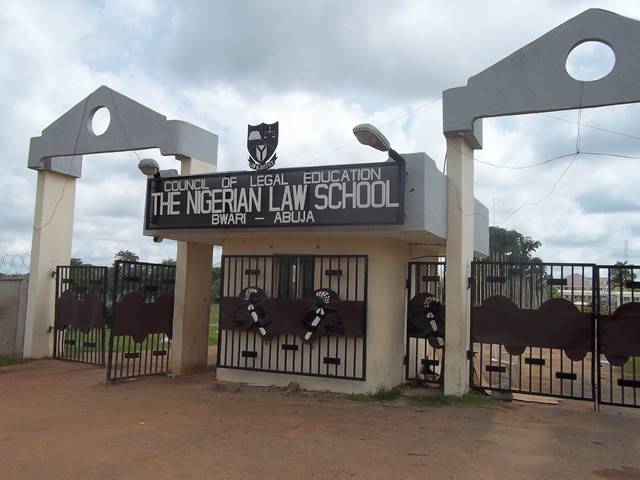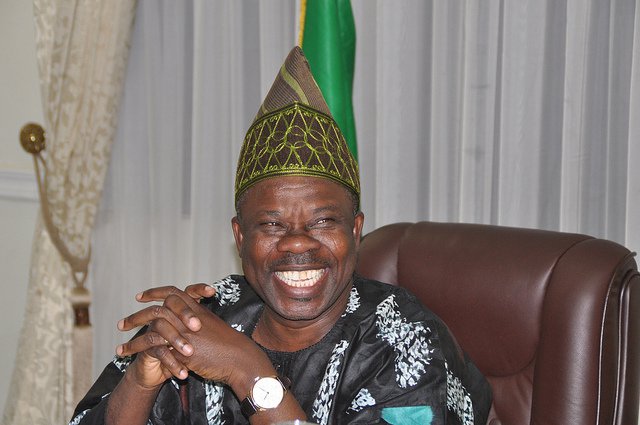BY OLASUNKANMI OKUNOLA
Six years after Nigeria and other African states signed the Sendai Framework for Disaster Risk Reduction 2015–2030 (SFDRR), disasters of various magnitude continue to destroy properties and render survivors homeless in Nigeria. This is further compounded by substandard housing; inadequate and or poor, in many cases, the outright absence of basic infrastructure and poor environmental sanitation.
Specifically, economic losses have risen steadily, stoked by climate change, unbalanced urbanisation and inequalities, and now average US$250 billion to US$300 billion a year in damages across cities in Nigeria according to EM-DAT database. The combination of these risk factors creates an instant recipe for human-induced and nature-induced disasters in the country.
If the latest findings from the Intergovernmental Panel on Climate Change (IPCC) is anything to go by, more extreme climate events, such as floods, droughts, are projected to increase in both frequency and intensity in many African countries including Nigeria. Projection of these compounding climate-related extreme events and human-induced hazards in these countries gives a worrying picture of the challenges that lie ahead. Therefore, more attention is being drawn in recent times towards disaster risk reduction (DRR) rather than emergency management.
Advertisement
In response to this realisation, the Nigerian government participates in several regional and international DRR frameworks such as Hyogo Framework of Action in 2005 and the recent Sendai Framework for Disaster Risk Reduction albeit with limited success. One reasonable explanatory hypothesis for this reality is that the operational disaster risk reduction systems in the country lay more emphasis on disaster response than on risk prevention and mitigation.
The National Emergency Management Agency (NEMA) whose responsibility is to organise and coordinate DRR activities in the country has been incapable of fulfilling its statutory mandate. The general approach to disaster management by the agency is made up of facilitating the evacuations of victims and providing the victims the most urgent assistance, usually in the form of food, warm clothes, medicine and temporary shelter. Where the agency DRR strategy has shown a leaning towards some disaster preparedness efforts, they have remained theoretical rather than practical.
There is also a weak or frosty relationship between NEMA, some state emergency management agencies and local government authorities as they appear to collaborate with suspicion. This is even more so that the local governments have not formed the local emergency management committee which is the organ that should drive community activities in disaster risk reduction. Furthermore, provision for engagement of members of the society in disaster management is very weak as no provision has been made in the National Disaster Risk Reduction Plan to ensure that people are trained and made well informed about issues related to DRR. Besides, there are no provisions in the National Disaster Risk Reduction Plan for ensuring that responsibilities of different stakeholders (both government and non-government) are fulfilled, and the rights of individuals before, during and after disaster events are protected.
Advertisement
The establishment of the federal ministry of humanitarian affairs, disaster management and social development in 2019 gave a glimpse of hope to many Nigerians of better coordination and organisation of disaster risk reduction among various stakeholders in the country. However, the various activities of the ministry have not shown any sign of an integrated and inclusive approach to DRR and strategic disaster mitigation, preparedness, as promised in its mandate. Although, one could argue that the ineffectiveness of these government agencies in implementing effective DRR in Nigeria is a result of the low priority given to risk reduction in national budgets and failure to strengthen disaster risk governance to manage disaster risk as the federal government does not see disaster risk reduction as a priority.
In view of this seeming retrogressive state of DRR in Nigeria, it is strongly recommended that disaster risk reduction should be national, state and local governments’ priority, focusing on the understanding of disaster risk in all its dimensions of vulnerability, capacity, exposure of persons and assets, hazard characteristics and the environment. Such knowledge can be used for risk assessment, prevention, mitigation, preparedness and response in accordance with Sendai Framework.
Equally important is the public and private investment in disaster risk prevention and reduction through structural and non-structural measures to enhance the social, economic, health and cultural resilience of persons, communities, and their assets, as well as the environment. Similarly, responsibilities and roles of all stakeholders at all three levels of governance on key issues in disaster management need to be properly identified and defined. Furthermore, awareness of disaster impacts is necessary for inculcating into the residents and community groups the culture of disaster preparedness, prevention, mitigation, response and recovery.
In other words, both proactive and reactive approaches to disaster education are advocated. Public information and enlightenment campaigns in print and electronic media and through community-based organisations such as women and youth associations, neighbourhood organisations, market/trade and religious organisations should be vigorously pursued. Also, disaster management studies should be incorporated into the educational curriculum at all levels in Nigeria with emphasis on disaster risk reduction. This will among other benefits produce qualified professionals, policymakers and managers
Advertisement
required to meet the human resources need of disaster management organisations and enhance the capacity of the agencies to formulate the right policies needed for effective disaster risk reduction strategies in Nigeria.
Olasunkanmi Okunola is a DAAD ClimapAfrica postdoctoral fellow at the University of the Witwatersrand. He tweets @sunkiehabeeb
Views expressed by contributors are strictly personal and not of TheCable.
